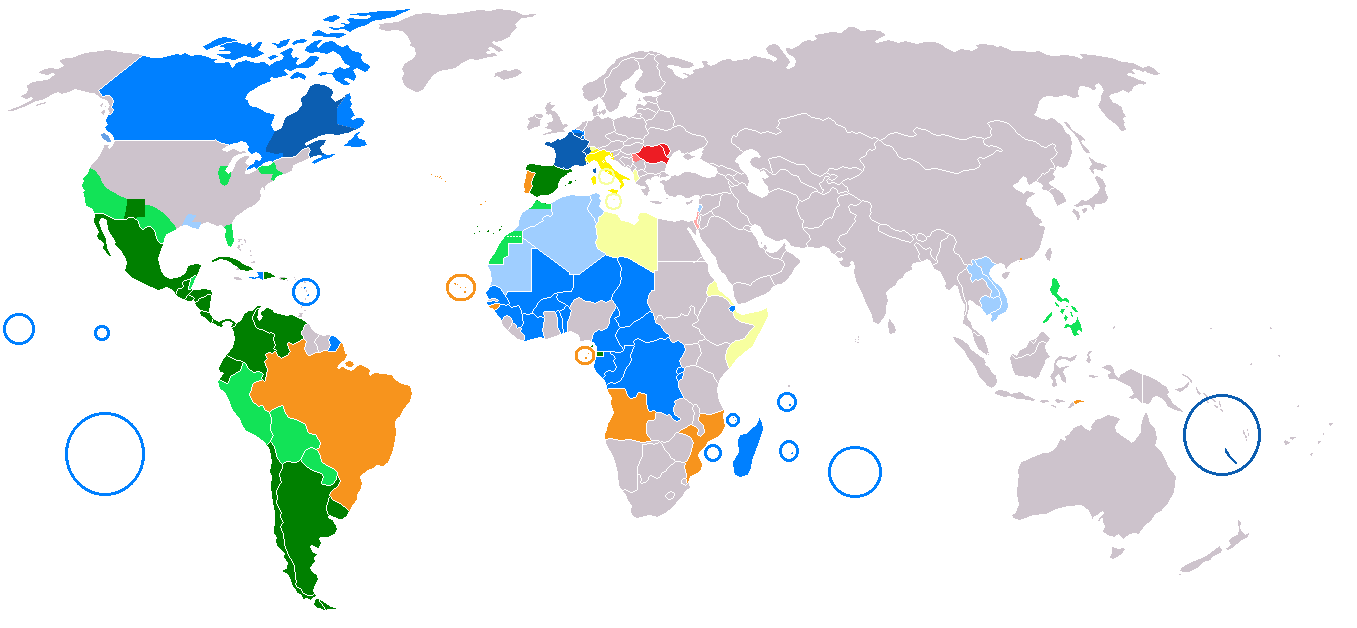 If you have ever tried and failed to learn a language in the past, you might have come to the conclusion that you simply aren’t “good at languages,” or don’t have the “language gene.” Learning languages, apparently, is best left up to the type of people who perpetually have their nose stuck in a book, or language nerds who have no lives outside of academia.
If you have ever tried and failed to learn a language in the past, you might have come to the conclusion that you simply aren’t “good at languages,” or don’t have the “language gene.” Learning languages, apparently, is best left up to the type of people who perpetually have their nose stuck in a book, or language nerds who have no lives outside of academia.
Now, if you think about it, this is obvious “sour grapes” thinking. Here’s the thing: everyone out there, except maybe feral children, have learned at least one language to fluency. If you grew up speaking English, for example, then I’d be willing to bet you’ve mastered the language to the point where you can understand all the subtle nuances and shades of meaning used in most situations, aside from extremely technical jargon. Really, you’ve learned to speak English at native-level fluency! You’ve already done it once!
Scientists have discovered that there is in fact a language gene. But the thing is, all humans have it, even you.
Still, I’m going to go ahead and say that some people are better than others at learning languages, but the reasons aren’t what you might think; they’re not really linguistic in nature, nor are they innately exclusive advantages you can never hope to have.
Here are some of the reasons I’ve found, in no particular order:
Frustration tolerance / Impatience
If you absolutely must see quick results, or breeze through anything you try, I’m sorry to say it, but you’ll have a tough time with language learning. This is one area where simply memorizing a checklist of items will not get you to where you’re trying to get to. Learning a language takes practice, and stretching yourself. Some days it will come easier than others, but if you’re the kind of person who quits if you can’t get it right the first time, stop being that kind of person.
Open-mindedness to new ways of doing things
I could write a whole post just about this one topic. Maybe I will sometime. For now, suffice it to say that the way we word things in English isn’t necessarily the logical way to do things. It’s just the familiar way for us. Other languages use completely different rules for putting words together to communicate ideas. You’ll have trouble learning languages if you can’t get let go of the notion that English’s way is always the better way.
Creative thinking
You have two options: either learn every single word in every possible combination that exists in your target language, or accept the fact that sometimes you’ll have to express an idea that you don’t have the exact words to communicate. Personally, I think the second is infinitely easier. Of course, this means you will sometimes have to use some creative thinking to get an idea across, but this is a skill that is easy to learn with practice. For example, if you don’t know the word for, let’s say, a planter box, you can say “that wooden box that has flowers in it.” Most likely, the person you’re talking to will understand your meaning.
Openness to social risk
This is one that I’ve had a hard time with. Unless you only intend to use your language for reading, for example, with Biblical Hebrew or Latin, odds are you’ll want to talk to someone in your language. The reality is that you’re extremely likely to be in a situation where you’ll need to think on your feet while in a social setting. You’re going to make mistakes in front of people. You’re going to have to make weird sounds come out of your mouth.
If you’re one of the many people who have a tough time in social situations in your own language, let alone a new one, my advice is to make an experiment out of it. I think the key is in the way you approach failure. If failure means you’re terrible at languages no one will ever talk to you again and you’ll never amount to anything and why keep trying because AAAAAAAAHHH!! then you’re much less likely to have a good experience. On the other hand, if failure simply means noting what didn’t work, iterating, and trying again, then you take personal risk out of the equation, and you’ll see much more progress.
Sense of purpose
Have a clear idea of why you want to learn this language in the first place. Is it because your girlfriend is French and you want to be able to talk to her in her own language? Is it because your family came from Mexico and you want to learn Spanish to connect with your heritage? Is it because you want to further your career prospects in Japan? Is it because you love Italian culture, art, music, etc., and want to immerse yourself more deeply into it? Is it because you want to be able to read your religion’s sacred texts in their original language to pick up on nuances that might not carry over into the translation? Is it because you’re fascinated with the uniquely human cognitive construct that is language and want to understand what you have in common with people half the world away?
The firmer the understanding you have of exactly why you’re putting yourself through this process, the more likely you are to stick through the rough patches and see success.
Sense of direction / Goals
Here’s a scenario. Two guys set a New Year’s resolution to lose weight and get in shape.
The first guy gets a subscription to a gym, not because gyms are inherently better, but because he knows he’s more likely to stick with it if he knows he’s spending money on it every month. He goes to the library and gets a book on the different kinds of exercises for different muscle groups. He hires a personal trainer to show him exactly how to do the exercises for optimal results. He takes regular measurements and tracks his performance and progress.
The other guy gets a gym membership because that’s what everyone does when they want to get in shape. He goes every once in a while and lifts a random bar here and there, runs on the treadmill for awhile until he gets bored, then sits in the hot tub.
Which of the two is more likely to get the results he wants? Obviously.
The main point isn’t to spend more money, it’s to create a framework for your own success. Set goals. Track your progress. Define specific objectives you want to meet, and solid deadlines for those objectives.
Already having learned a second language
Here’s the kicker: once you’ve already learned a second language, it’s much easier to learn a third, and fourth, and so on. The reason is that learning a second language requires learning how to learn a language. There are many different smaller skills involved that you simply haven’t picked up yet. Once you’ve deconstructed the process and learned these skills once, you can reuse them again and again. So don’t worry, the first time is the hardest. It gets better.






